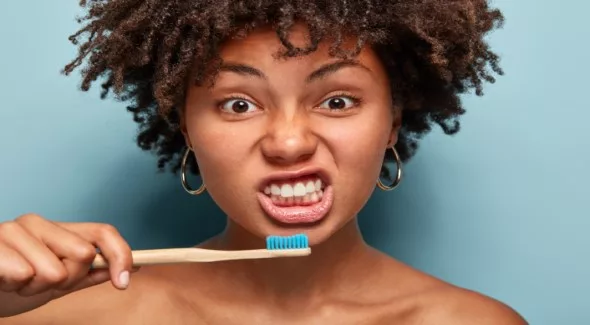Common Brushing Mistakes You Need To Avoid
Brushing your teeth is one of the simplest and most effective ways to maintain good oral health. However, despite its simplicity, many of us make common brushing mistakes that can lead to a range of oral health problems, from tooth decay and sensitivity to gum disease and tooth loss. In this article, we’ll explore the most common brushing mistakes and provide tips on how to avoid them.
1. Brushing too hard
Many of us mistake brushing hard for brushing effectively. In reality, brushing too hard can damage the gums and tooth enamel, leading to enamel wear and sensitivity. To avoid this mistake, use a soft-bristled toothbrush and gentle circular motions to clean your teeth.
2. Not brushing long enough
Brushing for too short a time may not be enough to effectively remove plaque and bacteria from your teeth. Make sure to brush for at least two minutes, twice a day, to ensure a thorough clean.
3. Brushing at the wrong angle
Brushing at the wrong angle can lead to poor cleaning and ineffective removal of plaque and bacteria. When brushing, hold your toothbrush at a 45-degree angle against your gums, and use gentle circular motions to clean your teeth.
4. Not replacing your toothbrush regularly
Old toothbrushes can become worn and frayed, leading to ineffective cleaning and even damage to your gums and teeth. Replace your toothbrush every three to four months or sooner if the bristles become frayed.
5. Not brushing all surfaces

Make sure to brush all surfaces of your teeth, including the front, back, and top surfaces, as well as your tongue and the roof of your mouth. This will help to remove plaque and bacteria from all areas of your mouth.
6. Not using fluoride toothpaste
Fluoride toothpaste is essential for protecting your teeth against tooth decay and sensitivity. Use a fluoride toothpaste and mouthwash to keep your teeth strong and healthy.
7. Not visiting your dentist regularly
Regular dental check-ups are crucial for maintaining good oral health. Visit your dentist every six months for a professional cleaning and check-up to catch any oral health problems early.

8. Brushing with a toothbrush with the wrong size
Use a toothbrush that is designed for your mouth size. A toothbrush that is too small may not be able to effectively clean all areas of your mouth, while a toothbrush that is too large may be uncomfortable and difficult to maneuver.
9. Not paying attention to the bristles
Make sure to check the bristles on your toothbrush regularly for fraying or damage. Worn-out bristles can lead to ineffective cleaning and even damage to your gums and teeth.
10. Not taking your time

Many of us rush through brushing our teeth, but this can lead to poor cleaning and ineffective removal of plaque and bacteria. Take your time and brush slowly and carefully to ensure a thorough clean.
In conclusion, brushing your teeth is a simple but effective way to maintain good oral health. By avoiding these common brushing mistakes, you can help to prevent a range of oral health problems and keep your teeth and gums strong and healthy. Remember to use a soft-bristled toothbrush, brush for at least two minutes, twice a day, and visit your dentist regularly to ensure optimal oral health.


